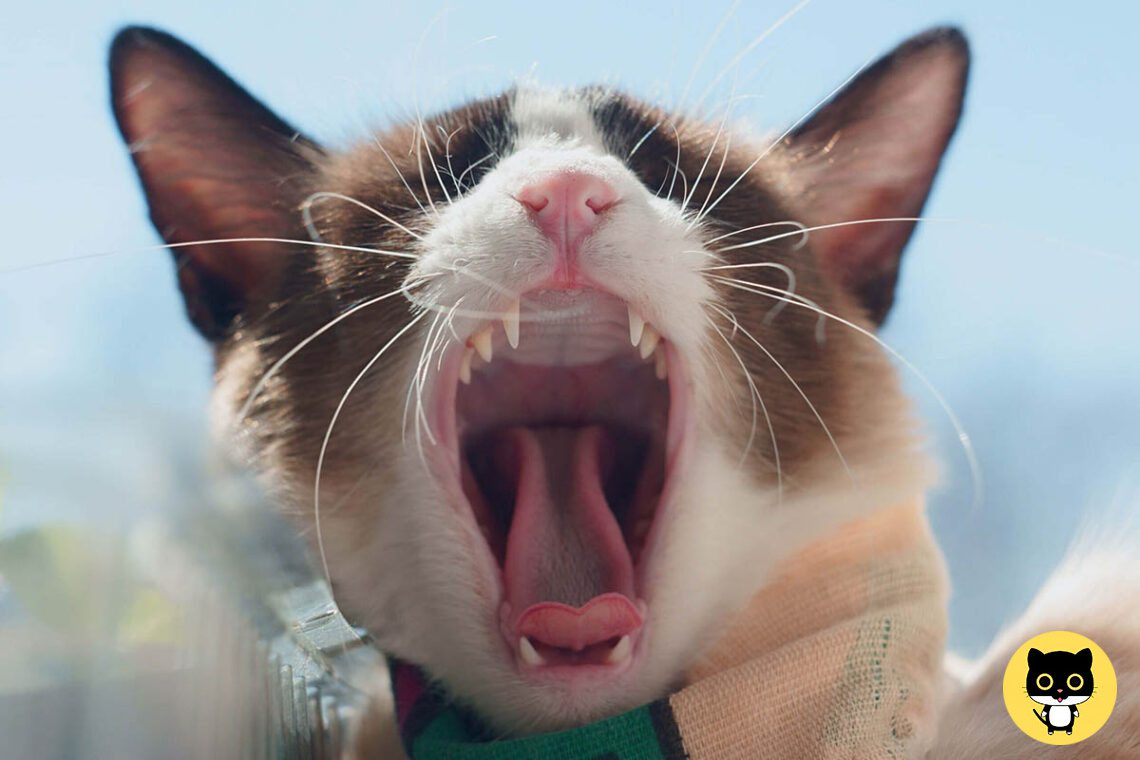Gingivitis in cats is a serious condition that can lead to more severe dental and oral health problems if left untreated. In this article, we’ll look at the signs and symptoms of gingivitis in cats, common causes, prevention measures, diagnosis, and treatments. We’ll also discuss some home remedies for gingivitis in cats, as well as dietary and veterinary care considerations.
What is Gingivitis in Cats?
Gingivitis in cats is an inflammation of the gums, which is the soft tissue that surrounds and supports the teeth. It’s caused by bacteria and plaque build-up on the teeth, which causes the gums to become red, swollen and inflamed. If left untreated, gingivitis can lead to more serious dental and oral health problems, such as periodontal disease and tooth loss.
Although gingivitis is most commonly seen in cats over the age of five, it can affect cats of any age. It’s important to be aware of the signs and symptoms of gingivitis in cats so that it can be treated promptly and effectively.
Symptoms of Gingivitis in Cats
The most common symptom of gingivitis in cats is red and swollen gums. This can be accompanied by bad breath, excessive drooling, and difficulty eating. In some cases, cats may also be reluctant to allow their owners to look inside their mouths.
As mentioned, if gingivitis is left untreated, cats may develop more severe dental and oral health problems, such as periodontal disease. This can lead to tooth loss, pain, and difficulty eating.
Common Causes of Gingivitis in Cats
The most common cause of gingivitis in cats is plaque build-up on the teeth. Plaque is a sticky, colorless film that forms on the teeth and contains bacteria. Over time, this bacteria can cause the gums to become inflamed, swollen and red.
Other common causes of gingivitis in cats include poor dental hygiene, poor nutrition, weakened immune system, and genetics. In some cases, cats may also develop gingivitis due to injuries or infections in the mouth.
Prevention of Gingivitis in Cats
The best way to prevent gingivitis in cats is to practice good dental hygiene. This means brushing your cat’s teeth regularly with a soft-bristled toothbrush and toothpaste designed specifically for cats. You should also make sure to feed your cat a balanced diet and provide plenty of fresh, clean water.
In addition, regular visits to the veterinarian are important for preventing gingivitis in cats. During these visits, your vet can check your cat’s teeth and gums for signs of gingivitis and provide advice on how to keep your cat’s teeth and gums healthy.
Diagnosing Gingivitis in Cats
If your cat is showing signs of gingivitis, it’s important to take them to the vet for a diagnosis. Your vet will examine your cat’s mouth and may take x-rays to check for any underlying problems. They may also take a sample of tissue from your cat’s gums to look for signs of infection.
If your vet suspects that your cat has gingivitis, they may recommend a course of antibiotics to help clear up the infection. In some cases, your vet may also recommend a dental cleaning to remove any plaque and tartar build-up.
Home Remedies for Gingivitis in Cats
In addition to regular brushing and a balanced diet, there are some home remedies that can help treat gingivitis in cats. These include:
- Coconut oil: Coconut oil has anti-inflammatory and antimicrobial properties that can help reduce inflammation and kill bacteria in your cat’s mouth. Applying a small amount of coconut oil to your cat’s gums can help reduce inflammation and provide relief from pain and discomfort.
- Apple cider vinegar: Apple cider vinegar has antibacterial, antiviral, and antifungal properties that can help reduce inflammation and kill bacteria in your cat’s mouth. Mixing one part apple cider vinegar with four parts water and applying it to your cat’s gums can help reduce inflammation and provide relief from pain and discomfort.
- Probiotics: Probiotics contain beneficial bacteria that can help reduce inflammation and improve your cat’s overall health. Adding probiotics to your cat’s diet can help reduce inflammation and promote healthy gums.
Diet for Gingivitis in Cats
Your cat’s diet is an important part of treating gingivitis. Cats who are fed a balanced diet with plenty of fresh, clean water are less likely to develop gingivitis.
In addition, adding omega-3 fatty acids to your cat’s diet can help reduce inflammation and promote healthy gums. Some good sources of omega-3 fatty acids include fatty fish, flaxseed oil, and chia seeds. Your vet can help you create a balanced diet for your cat that includes the right amount of omega-3 fatty acids.
Veterinary Care for Gingivitis in Cats
Regular visits to the vet are important for preventing and treating gingivitis in cats. During these visits, your vet can check your cat’s teeth and gums for signs of gingivitis and provide advice on how to keep your cat’s teeth and gums healthy.
Your vet may also recommend a course of antibiotics to help clear up the infection. In some cases, your vet may also recommend a dental cleaning to remove any plaque and tartar build-up.
What is your experience with Gingivitis in cats? Please register to leave a reply below and to post in the Forums.






